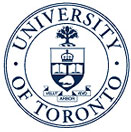The largest of the Central Asian countries, Kazakhstan has a most varied landscape, ranging from the mountainous to energy-rich lowlands, to arid, empty steppes and fertile terrain. Kazakhstan borders with China, Kyrgyzstan, Russia, Turkmenistan, and Uzbekistan. The country’s former capital, Almaty, was moved in December 1998 to Astana.
With a population of over 15 million and a large territory that makes it the 9th largest in the world, Kazakhstan is sparsely populated. During the Soviet period, an influx of Russians and other nationalities resulted in an ethnic mix in which Kazakhs were outnumbered by non-Kazakhs. After the country’s Independence in 1991, Kazakhs gradually became a majority ethnic group (53.4%), and Russians constituted 30% of the population (1999 census). The remaining breakdown, according to the 1999 census is as follows: Ukrainians (3.7%), Uzbeks (2.5%), Germans (2.4%), Uygur (1.4%), and other (6.6%). Major languages spoken are Kazakh and Russian, and major religions are Islam and Christianity. Building a cohesive national identity, given its multi-ethnic mix, is one of challenges facing Kazakhstan.
Kazakhstan possesses substantial fossil fuel reserves as well as abundant supplies of other minerals and metals. It also has a large agricultural sector featuring livestock and grain. Kazakhstan’s economy grew sharply in 2000, aided by increased prices on world markets for its leading exports of oil, metals and grain. With a per capita GDP of $1,780¹, it is the wealthiest of the Central Asian republics. In 2002 Kazakhstan enjoyed a 9% growth - thanks largely to its booming energy sector, but also to economic reform, good harvests, and foreign investment². At the same time, large income and social disparities continue to grow, with over 30% of the population living under the poverty line, according to official government statistics³. One of the challenges for Kazakhstan is to diversify the economy away from overdependence on the oil sector.
In the backdrop of Central Asian countries’ increasingly authoritarian governments, Kazakhstan, too, has faced international criticism of the worsening political climate in recent years. In March of 2005, three opposition parties merged to form a bloc called "For a Just Kazakhstan", and nominated ex-parliament speaker Zharmakhan Tuyakbai as their candidate for the election scheduled to take place in 2006.
Kazakhstan has a number of environmental issues, including contamination caused by Soviet-era nuclear tests in Semipalatinsk, the dumping of toxic waste and the abandoning of rocket fuel by Russian space vehicles launched from Baykonur, and the drying up of the Aral Sea.
By Jazira Asanova
¹ World Bank (2003)
² CIA World Factbook
³ UASAID country profile


